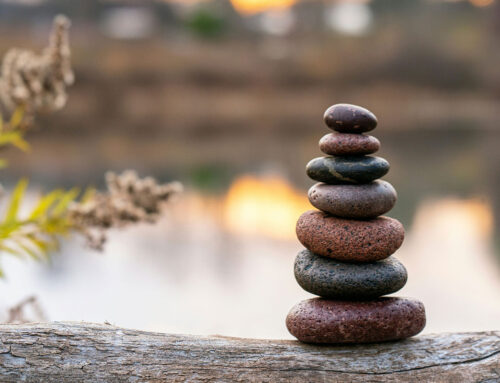A large proportion of the world were forced into lockdown to protect the wider population, but now we have to face the mental health challenges that come with returning to normal life.
There is still an air of uncertainty around what ‘normal life’ will look like after a pandemic, and this has made people feel more stressed, anxious and fatigued. If this sounds like you, you’re not alone and there are several steps you can take to cope during these trying times.
That’s why we’ve put together this handy guide on how to look after your mental health post-lockdown so that you can live a healthy, stress-free life once again.
Anxiety
Anxiety comes in many different forms, and for a large proportion of the population, the Coronavirus pandemic has contributed to heightened feelings of anxiety. If you’ve become more worried and anxious over lockdown, it’s essential to find an effective way to cope as life transitions back to normality.
You may have social anxiety if you’re worried about going back to the office and participating in social activities. Alternatively, you may be dealing with health anxiety, if you can’t go back to your normal daily activities because you’re about contracting COVID-19 and other diseases. Fortunately, we’re providing expert tips on how to control anxiety during these turbulent times.
How to Explain Anxiety
In summary, anxiety is the feeling of fear or worry. It’s a normal reaction to frightening situations, however, it can be a hindrance when you experience feelings of anxiety in inappropriate situations, or where there is no threat or crisis.
Whilst many of us experience anxiety at some point in our lives, it becomes a problem when it impacts day-to-day activities, such as going to work, school or social gatherings.
How to Stop Health Anxiety After Lockdown
Health anxiety, also known as hypochondria, is a fear or intense worry that you are ill or you are going to get ill. This can be especially difficult to deal with during a pandemic, as talk of illness, sickness and even death dominates the news and most public spaces.
Some of the symptoms of health anxiety include:
- Constantly worrying about your health
- Frequently checking your body for signs of illness
- Obsessively researching health information online
If you’re wondering how to stop health anxiety symptoms after lockdown, there are several steps you can take to prepare yourself for returning to normal life.
Keep a Diary
It can help to make a note of when you experience symptoms, so you can spot patterns and triggers, and you can try to reduce these behaviours.
Try Relaxation Techniques
Breathing exercises, mindfulness and hypnosis are all tools that can help you to relax and reduce feelings of anxiety. This can help you to keep calm when overthinking and worrying, so you can resume your normal activities.
Keep Your Mind Occupied
When you get the urge to check your symptoms online or check your body, try to distract yourself with another task. For example, you could go for a walk, or listen to your favourite music.
How to Overcome Social Anxiety Post-Lockdown
Social anxiety disorder is the fear of social situations, and this can have a massive impact on daily life. Some of the worst social anxiety sufferers can’t go to work, school or even leave the house due to their condition.
Having to stay indoors for several months could be both a blessing and a curse for those suffering from social anxiety disorder. On one hand, social interactions were halted altogether over lockdown, making it easier for those with social anxiety to cope. However, as we return to normality, the anxiety could come flooding back.
If this sounds like you, we’ve got a few tips to help you to cope as life transitions back to normality.
Challenge Negative Thoughts
If you suffer from a social anxiety disorder, it’s likely that you’ll have negative thoughts such as “I’m going to embarrass myself” or “people will think I’m stupid”.
It’s important to challenge these irrational thoughts as soon as they arise, and counteract them with logical reasoning. This can help you to look at social situations more positively.
Stress
We all experience stress at some point in our lives, and this is healthy. However, problems arise when we experience too much stress, and it makes us ill or inhibits us from carrying out our daily activities.
Over the past few months, there have been countless stressors that the nation has had to deal with, including:
- Uncertainty about the future
- Death
- Job losses and unemployment
- Working from home
- Financial concerns
- Working in a frontline role
If this sounds like you, and you’re struggling to cope, you’re not alone. Fortunately, there are a wealth of solutions out there for those looking for healthy ways to manage stress.
What Causes Stress?
Stress is often caused by significant life changes, pressure, anxiety, uncertainty, amongst many other factors. As such, it’s likely that a large proportion of the population has felt more stressed than normal during these unprecedented times.
It’s essential to find out what your stressors and triggers are so that you can find a way to cope as we emerge from lockdown.
How to Deal with Stress at Work
No matter whether you’re in a frontline role, or you’re working from home, work can be a source of stress for many of us. Whilst a little bit of stress is normal, when work becomes too overwhelming it can hinder rather than help us.
If you’re suffering from work-related stress, we’ve got some tips to help you manage your stress in a healthy way both in and out of quarantine.
Talk to Your Manager or Employer
One of the best ways to deal with stress at work is by having a conversation with your manager about how your role is affecting your mental health.
Whilst this can be a daunting task, there’s nothing to be afraid of. Once your employer knows about how the role is affecting you, you can work together to create a more manageable workload, take time off, or work on other solutions to make your work-life more positive.
Avoid Unhealthy Habits
When you’ve had a stressful day at work, it can be easy to slip into the routine of using unhealthy coping mechanisms to relax. For example:
- Overeating or eating too little
- Smoking
- Drinking too much alcohol
- Sleeping too much or too little
These can have a significant impact on your mental and physical wellbeing, so it’s important to find a safe way to cope when you’re feeling overwhelmed. You could try using a stress ball, going for a walk or practising deep breathing techniques as an alternative.
Take Time Off
It’s important not to feel guilty about taking time off work, no matter how busy you are. Whilst working from home, it can feel like you don’t need to take a holiday, however, you still need to make sure you’re giving yourself a break from work.
No matter whether you stay at home and do nothing, or you book a trip away, a holiday can help you to relax your mind and reset. Make sure to avoid work commitments, calls and emails during this time to protect your mental health.
How to De-stress Whilst Working from Home
Whilst working from home, it can be easy to slip into the pattern of working a little later than normal, or not taking enough breaks. This, in turn, can cause you to feel even more stressed, and this can impact your physical health in the long run.
It’s likely that working from home will become a bigger part of our daily routines as we emerge from lockdown. As such, it’s important to find ways to de-stress so that it doesn’t impact our wider health. If you’re finding it difficult to de-stress whilst working from home, we’ve provided our expert tips below to help:
Allocate ‘Wind Down’ Time
For many of us, it’s hard to ‘switch off’ after a stressful day at work. Nowadays, our office and our home lives are intertwined, making this even more difficult. In reality, our brains are processing the day’s events constantly, so it’s crucial to allocate some ‘wind down’ time after work to help you relax at home.
Stay away from all work-related devices and technology, and spend 10-30 minutes carrying out a mindfulness exercise. This will help you to ‘switch off’ and have a more restful evening.
Stretch and Exercise
Physical stretches will help you to release some of the tension in your body so that you feel more relaxed. Whereas, exercise is known to have a significant positive impact on your mental health, so keeping this up whilst working from home will help to make you feel less stressed overall.











